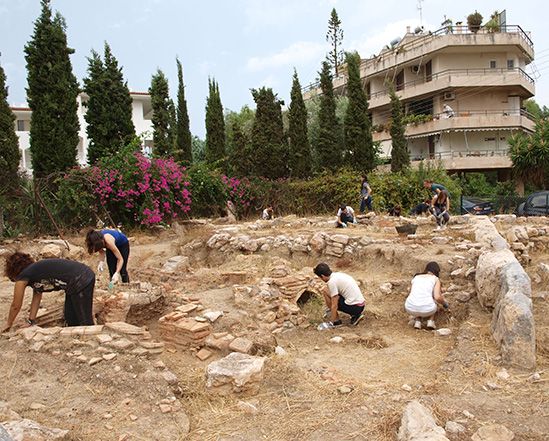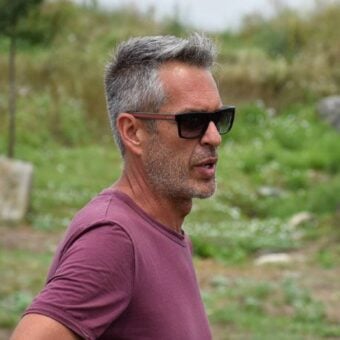
Excavating Forgotten Attica: the Case of Aixonidai Halai (Voula Field School)

Course Details
Schedule
Please keep in mind that excavation work is physically demanding and requires a total commitment of time and energy. Students will be devoting their mornings to the excavation, and attend lectures in the afternoon.
Field work will start at 8:00 a.m. and end at 1:30 p.m., with a brief break at around 11:00 a.m. Some weekend days may also be used to make up for lost excavation days due to bad weather.
You should be prepared to spend this time under the sun and in relatively high temperatures. Each day you are at the excavation, you are advised to have with you a bottle of water and a substantial snack.
Students will be provided with basic excavation tools upon arrival at the excavation site; in addition they are advised to bring with them the following:
- Hat with wide brim
- Sun Block
- T-shirts covering the shoulders
- Sturdy shoes or closed shoes (NO sandals on the excavation)
- Long trousers – to avoid injuries & scratches from plants
- Garden Gloves, if you wish to bring your own (you will be given a pair at the excavation)
Classroom meetings will be held in the late afternoon, 4:00 to 6:00 p.m. at the Academic Center. Lab work and workshops will also be included in the program. Weekends will be free in general, unless a weekend day is utilized to make up for lost excavation days due to bad weather.
Ground Transportation to and from the excavation site by minibus is included in the fees.
Enrollment
This course requires a minimum enrollment of 10, with a maximum enrollment of 20.
Credit
60 contact hours
Essential Information
Enrolled students will have access to detailed information prior to departure that will include directions to the Academic Center and other practical information about the course and field work. CYA recommends the following websites for general information about Athens and Greece: http://www.athensguide.com/ and http://www.greektravel.com/.
Housing
Students are housed within walking distance of the CYA Academic Center in either CYA student apartments located in the Pangrati neighborhood of central Athens or in hotel accommodations arranged by CYA. CYA apartments are simply furnished and equipped with a full kitchen and air-conditioned bedrooms; towels, linens and housekeeping service will be provided. Hotel accommodations will be in simple 2- or 3-star hotels, double- or triple-occupancy, with air-conditioned rooms.
Facilities
The CYA Academic Center is located next to the Athens Marble Stadium and houses classrooms, the library, the student lounge and cafeteria, computer facilities (including wireless access for those students who choose to bring laptop computers), laundry facilities, and administrative offices. The Academic Center is accessible Monday-Thursday 9:00 a.m.-7:00 p.m., Friday 9:00 a.m.-6:00 p.m.
Meals
A full mid-day meal will be served weekdays in the CYA cafeteria between the hours of 2:00 – 3:00 p.m. A welcome and a farewell dinner are also included in the course fee.
Day-to-day Program & Itinerary
The day-to-day program and itinerary of the course are subject to change. Students are advised not to make plans for their free time or weekends in advance, as class schedules and site visits may be re-scheduled depending on local conditions.
![]()




